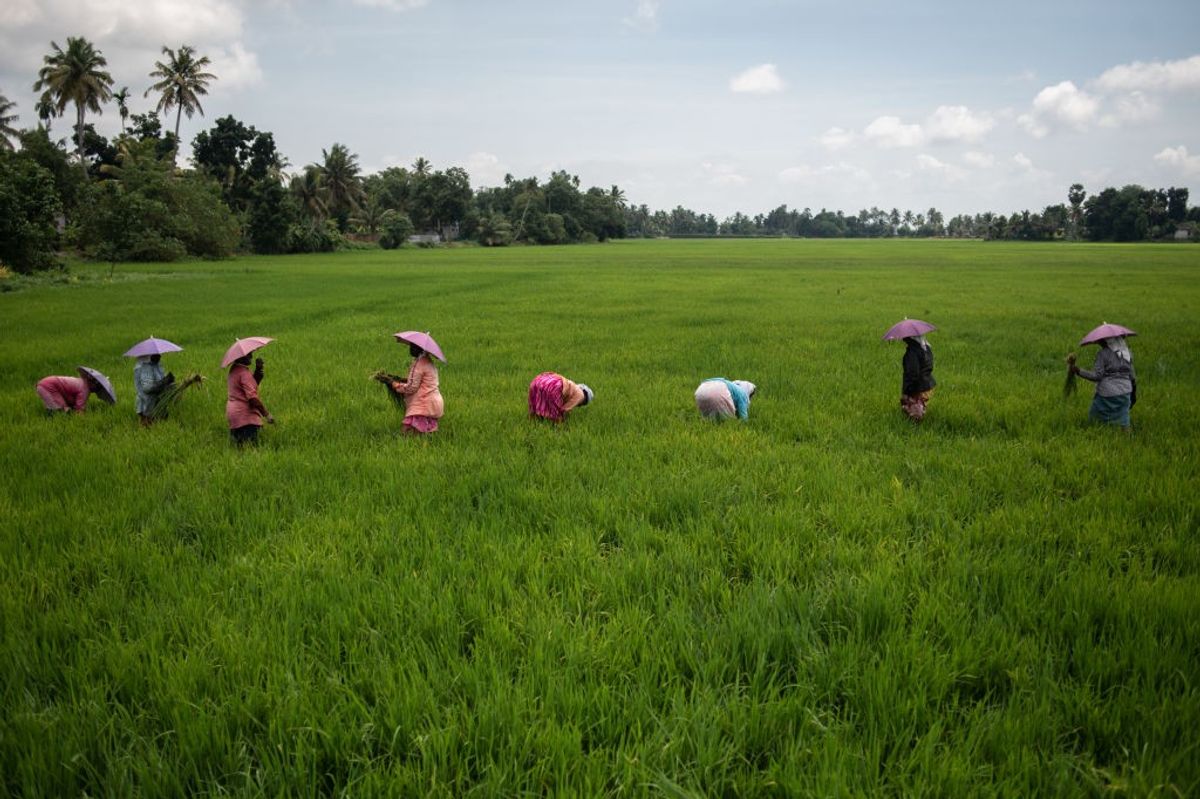India banned exports of broken rice and imposed a 20 per cent duty on exports of various grades of rice on Thursday as the world's biggest exporter of the grain tries to augment supplies and calm local prices after below-average monsoon rainfall curtailed planting.
India exports rice to more than 150 countries, and any reduction in its shipments would increase upward pressure on food prices, which are already rising because of drought, heat-waves and Russia's invasion of Ukraine.
The new duty is likely to discourage buyers from making purchases from India and prompt them to shift towards rivals Thailand and Vietnam, which have been struggling to increase shipments and raise prices.
The government has excluded parboiled and basmati rice from the export duty, which will come into effect from today (9 September).
New Delhi also banned exports of 100 per cent broken rice, which a few poor African countries import for human consumption, though that variety is mainly used for feed purposes.
The duty will affect white and brown rice, which account for more than 60 per cent of India's exports, said B.V. Krishna Rao, president of the All India Rice Exporters Association.
"With this duty, Indian rice shipments will become uncompetitive in the world market. Buyers will shift to Thailand and Vietnam," Rao said.
India accounts for more than 40 per cent of global rice shipments and competes with Thailand, Vietnam, Pakistan and Myanmar in the world market.
Below-average rainfall in key rice-producing states such as West Bengal, Bihar and Uttar Pradesh has raised concerns over India's rice production. The country has already banned wheat exports and restricted sugar shipments this year.
Indian exports would fall by at least 25 per cent in coming months because of the duty, said Himanshu Agarwal, executive director at Satyam Balajee, India's biggest rice exporter.
Exporters want the government to provide some relief for export contracts that have already been signed, with vessels loading at the ports.
"Buyers can't pay 20 per cent more over agreed price and even sellers can’t afford to pay the levy. The government should exempt already signed contracts from the levy," Agarwal said.
India's rice exports touched a record 21.5 million tonnes in 2021, more than the combined shipments of the world's next four biggest exporters of the grain: Thailand, Vietnam, Pakistan and the United States.
India has been cheapest supplier of rice by huge margin and that shielded African countries such as Nigeria, Benin and Cameroon to an extent from a rally in wheat and corn prices, said a Mumbai-based dealer with a global trading firm.
"Except rice, prices of all food crops were rising. Rice is joining the rally now," he said.
The ban on broken rice shipments could badly affect China's purchases for feed purpose, he said.
China was the biggest buyer of broken rice, with purchases of 1.1 million tonnes in 2021, while African countries such as Senegal and Djibouti bought brokens for human consumption.


